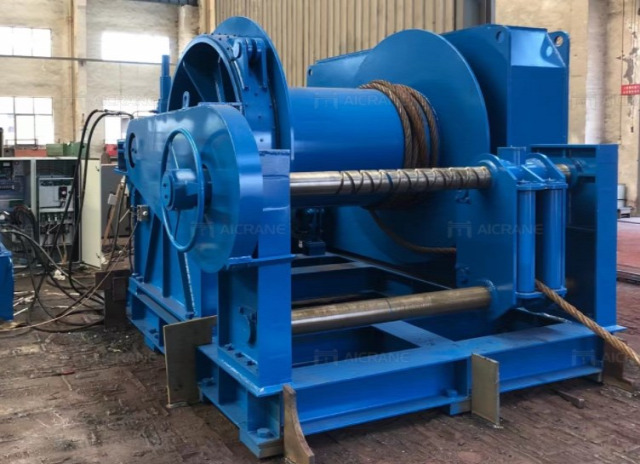When it comes to heavy-duty lifting and pulling operations, selecting the appropriate winch is crucial. For applications requiring a 50-ton capacity, both electric and hydraulic winches offer viable solutions. In this blog post, we will explore the key considerations in choosing between 50-ton electric and hydraulic winches, examining their advantages, limitations, and factors that can influence your decision-making process.

Power Source and Performance
Electric winches rely on electricity as their power source, making them ideal for applications with consistent access to a power grid or generator. They offer reliable performance with precise control, allowing for smooth starts and stops. Hydraulic winches 50 ton, on the other hand, use hydraulic fluid and are driven by a hydraulic system, making them suitable for applications where power sources may be limited or where high pulling forces are required. Hydraulic winches excel in providing continuous pulling power and are often preferred in rugged and demanding environments.
Control and Speed
Electric winches offer precise control over speed and direction, allowing operators to fine-tune the pulling operation. They can be equipped with advanced control systems, such as variable frequency drives, to achieve optimal performance. Electric winches typically provide faster line speed compared to hydraulic winches, making them more suitable for applications that require quick and efficient operation. However, hydraulic winches offer excellent control over the pulling force, allowing operators to vary the speed based on the load and terrain conditions, which can be advantageous in certain scenarios.
Maintenance and Reliability
Electric winches generally require less maintenance compared to hydraulic winches. They have fewer moving parts and do not require hydraulic fluid changes or filtration. Electric winches also tend to be more resistant to environmental factors such as moisture and temperature variations. Hydraulic winches, although more complex, require regular fluid checks, filtration, and occasional seal replacements. However, with proper maintenance, both types of winches can offer reliable performance and longevity.
Portability and Installation
Electric winches are typically more compact and lightweight, making them easier to transport and install. They can be mounted on a variety of surfaces, including vehicles, trailers, or fixed structures. This portability provides flexibility and convenience in various applications. Hydraulic winches, due to their hydraulic system components, tend to be bulkier and heavier, requiring more substantial mounting structures and more careful consideration during installation. While hydraulic winches may be less portable, they offer the advantage of being self-contained, not relying on external power sources.
Environmental Considerations
When choosing between electric and hydraulic winches, it is essential to consider the environmental factors of your application. Electric winches are quieter, emit fewer emissions, and are generally more environmentally friendly. They are suitable for applications in noise-sensitive or eco-conscious environments. Hydraulic winches, although more powerful, generate noise and require hydraulic fluid, which should be managed properly to prevent environmental contamination. Understanding the specific environmental regulations and restrictions in your operational area will help you make an informed decision.
Cost Factor
The cost of a winch is an important consideration. Electric winches generally have lower upfront costs, as they are simpler in design and do not require a hydraulic system. They also tend to have lower maintenance and operational costs. Hydraulic winches, although more expensive initially, offer higher pulling forces and can be more cost-effective in applications where high loads and continuous operation are required. Consider the long-term cost implications, including maintenance, operational efficiency, and potential downtime, when evaluating the overall cost-effectiveness of each option.
Conclusion
Choosing between a 50-ton electric or hydraulic winch requires careful consideration of factors such as power source availability, control requirements, maintenance needs, portability, environmental considerations, and cost factors. By evaluating these aspects in relation to your specific application, you can make an informed decision and select the winch that best suits your operational requirements.

